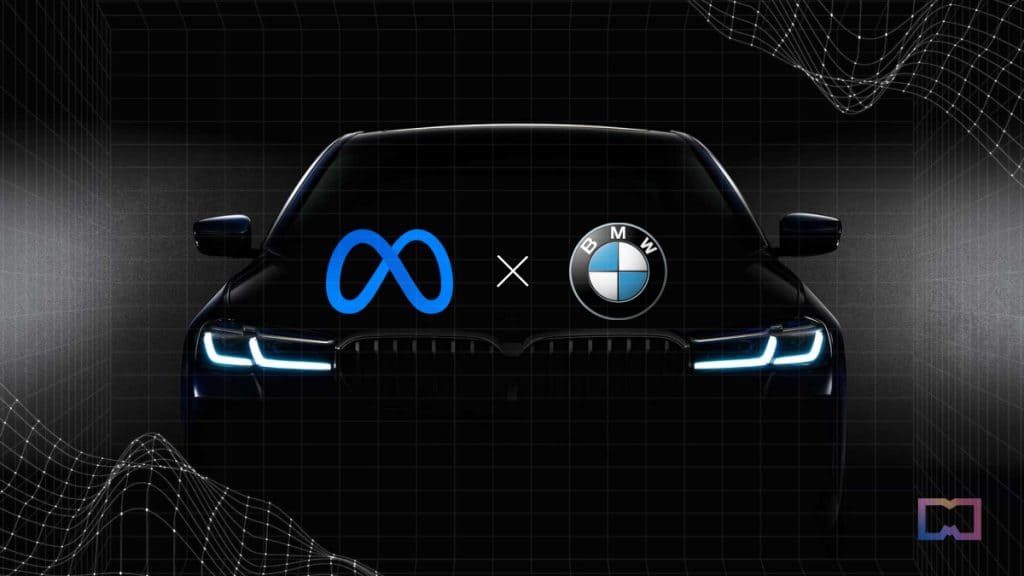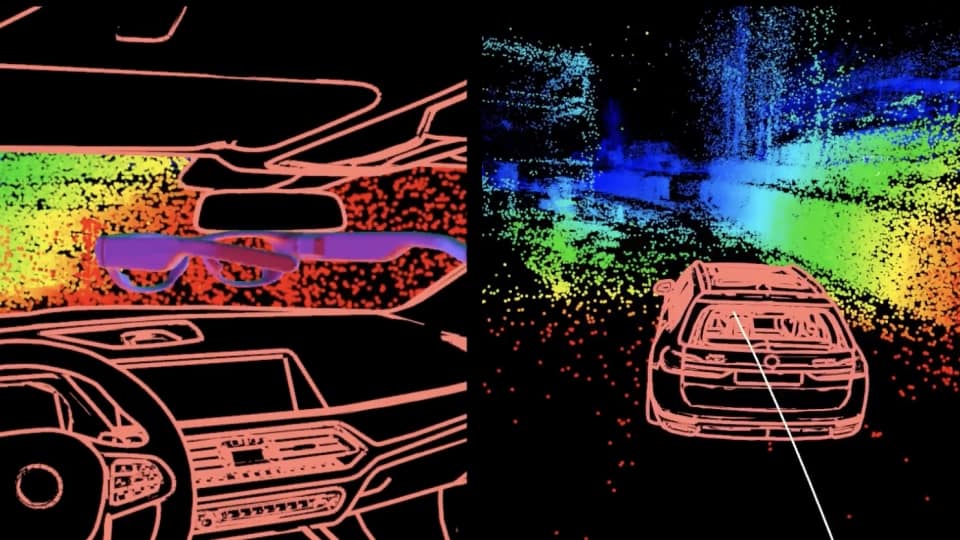Meta and BMW Launch a Vision for Next-Generation In-Car Entertainment Leveraging VR/AR
In Brief
The joint effort between Meta and BMW focuses on incorporating augmented and virtual reality into smart vehicles, with the goal of elevating the travel experience for all passengers.
This collaboration brings together Meta’s advanced capabilities in AR/VR and the technological resources of BMW’s Group Technology Office located in the USA.
Successfully tackling the obstacles presented by VR headsets in mobile environments, the two companies have integrated sophisticated tracking systems and sensor data.

Meta and BMW have joined forces By merging augmented and virtual reality tech into smart vehicles, this partnership seeks to completely redefine transportation, making journeys more engaging and interactive.
This partnership, announced in 2021, symbolizes a significant leap towards a more engaging travel experience. Meta’s Reality Labs Research—leading the charge in AR and VR technologies—has collaborated with BMW's Group Technology Office in the USA.
As outlined in a blog post from Meta, the alliance has addressed critical challenges associated with Oculus Insight technology, which monitors VR headset motion through a blend of inertial motion sensors and cameras. The primary issue lies in reconciling the data from cameras tracking movements inside the car with the IMUs (inertial measurement units) that gauge the vehicle's motion in the world. To navigate this challenge, Meta and BMW have fused real-time IMU data from the car’s extensive sensor network into their tracking systems for research eyewear. Project Aria In a stunning demonstration, Meta and BMW proved their capabilities in consistently showcasing VR and mixed reality (MR) content to passengers enjoying the ride in a rapidly moving vehicle. This marks a pioneering achievement, where the stability of the visual content remains intact even through turns, over bumps, and during accelerations. By seamlessly syncing the tracking technology of Meta Quest with the vehicle’s sensor outputs, they’ve crafted a variety of immersive experiences—ranging from gaming to entertainment and productivity—tailored specifically for the car's context.

Imagine experiencing cutting-edge technology while you're cruising down the road—How does that sound?
Although it’s too early to predict precisely how or when this innovative technology will reach consumers, various potential use cases for XR devices in vehicles have been envisioned—from helping drivers find their cars in crowded parking situations to warning them of road hazards and providing critical vehicle condition data. The future implications of AR glasses and VR systems for both passengers and drivers are incredibly promising,”
Claus Dorrer, who heads BMW Group Technology Office USA in Mountain View, remarked. BMW has integrated blockchain solutions into its daily operations and launched a blockchain-based loyalty initiative for customers in Thailand. In partnership with Coinweb, a blockchain infrastructure provider, they have employed decentralized architectures and utilize Binance’s BNB Chain for transactional processes. Exploring the Influence of Artificial Intelligence on the Travel Sector
said Meta users can now share NFTs across both Instagram and Facebook platforms.
Last year, BMW integrated Please remember that the details shared on this page are not meant to be classified as legal, tax, investment, financial, or any other type of professional advice. Always invest wisely—only use funds you can stand to lose, and consider seeking advice from an independent financial advisor if you're uncertain. For more extensive details, we recommend consulting the terms and conditions, as well as the help and support resources available from the issuer or advertiser. MetaversePost aims to deliver precise and impartial reporting; however, market situations may alter without prior notice.
Read more:
Disclaimer
In line with the Trust Project guidelines April 2025: The Most Attention-Grabbing Blockchain Initiatives







